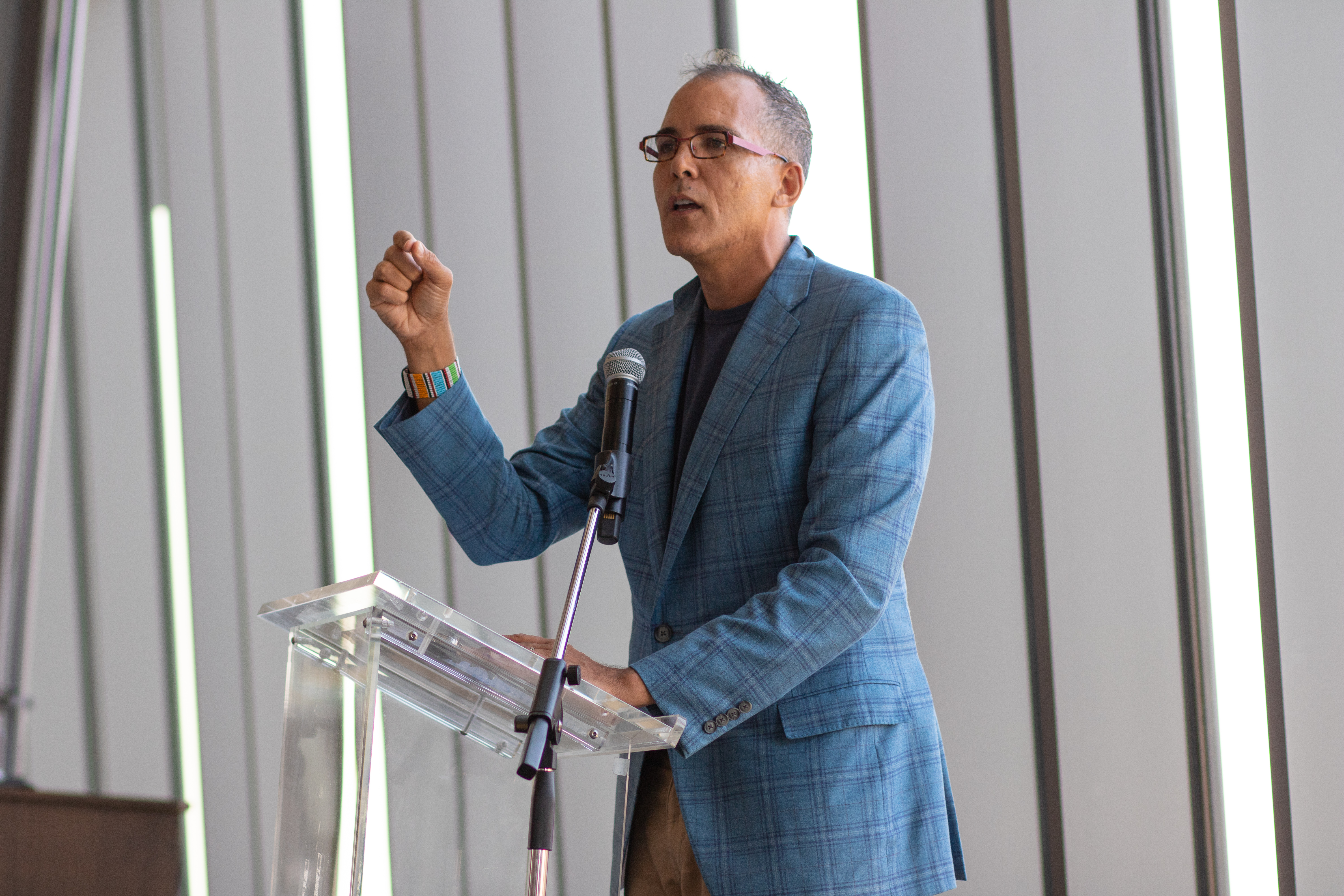By Alex Graf
News Editor
The CSUDH California Faculty Association held its end of the semester breakfast at the Loker Student Union on Dec. 5, 2018, to bring faculty together, reflect on achievements, and celebrate semester’s end as they prepare to negotiate their next contract.
Faculty sat around tables in LSU Ballroom A and munched upon breakfast burritos, fruit, potatoes
“It’s an opportunity for faculty to become familiar with the union and we encourage them to become activists,” said CFA representative and faculty member Cynthia Villanueva. “We encourage them to participate and share in governance on campus.”
Sociology professor Dr. La Tonya Skiffer said the CFA is trying to mobilize faculty on campus as the union is entering another session of bargaining. Skiffer repeated the CFA mantra: “Faculty working conditions are student learning conditions.”
Business professor Kirti Celly said she didn’t understand the need for a union at first.
“I got invited to a Board of Trustees meeting by the CFA and I was horrified to see armed police in the room,” Celly said. “We’re the faculty and we’re the threat? It’s ridiculous.”
Villanueva explained a union allows workers to organize to obtain things like benefits, better salaries, promotions, and job stability.
“Workers are often mistreated and exploited,” Skiffer said. “Corporate profits are at an all-time high and workers don’t reap those benefits. Collectively coming together empowers marginalized workers. The only reason workers have benefits today is because of unions.”
For students interested in potentially organizing their own workplace, Skiffers suggests reaching out to fellow workers, but to “keep those conversations on the low,” so as not to alert management.
“Reach out to other unions and learn about labor laws in your state,” Skiffer said. “California is one of the most protective states of workers’ rights.”



